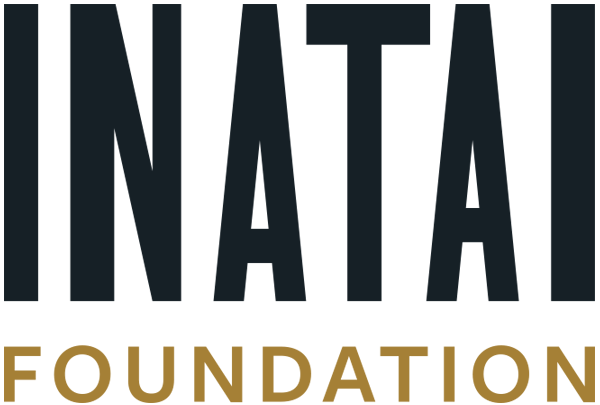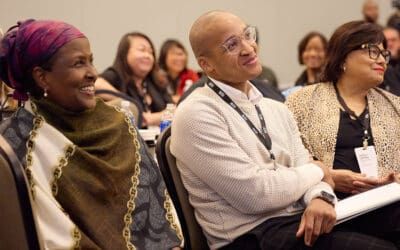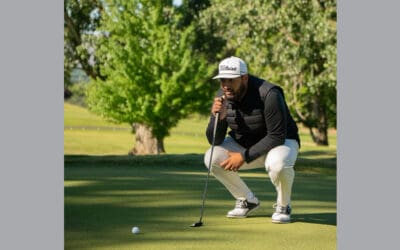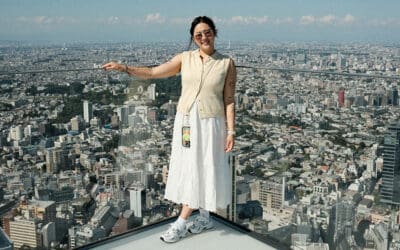Until Feb. 1, 2023, we were Group Health Foundation. This post was written under our former identity. To learn more about our new name, read our announcement here.
Open Doors for Multicultural Families — which provides culturally and linguistically relevant information, services, and programming to families of people with developmental and intellectual disabilities — was formed in the basement of Ginger Kwan’s home, together in community with other parents and professionals. In this virtual community conversation, Open Doors’ Executive Director Ginger joins Jay Thomas, a program officer at GHF, to share more about the story behind the organization’s formation and her own personal journey in this work.
Ginger also shares about Open Doors’ new project: the Multicultural Village. This inclusive housing project centers the needs of people with developmental disabilities. “We witness in our developmental disability community, the challenges – our people might be in the community, but they are isolated,” Ginger explained. “We want to break this isolation and create the inclusiveness in the environment that a person with a developmental disability and their family can thrive.”
Full video transcript
Jay:
Welcome to our latest community conversation. I’m Jay Thomas and I’m a program officer at Group Health Foundation, calling in from Puyallup, Washington. Today we’re chatting with Ginger Kwan, who’s the executive director of Open Doors for Multicultural Families.
Ginger started the organization in 2009, informed by her own experiences navigating a system that wasn’t designed for families like hers. Based in Kent, Open Doors provides culturally and linguistically relevant information, services, and programing to families of people with developmental and intellectual disabilities. Using a cultural brokering model, Open Doors staff are from the same culture and speak the same language as the families they serve, who are often immigrants, refugees, and or people of color. Open Doors is a recipient of our Community Learning Grants. These funds were designed to help us learn from and build relationships with community rooted organizations throughout the state.
Ginger, welcome. I am so looking forward to this conversation and learning more from you today. Thank you for making the time.
Ginger:
Well, thank you so much. Really appreciate it to have this time that we can have a conversation in. We usually meet like once a month, but this a special event for us, so I’m looking forward to talk with you and share with you what we have been doing and what we have learned throughout the years when we do our important work for our communities. So thank you.
Jay:
Absolutely. So it turns out that we’re talking during my one year anniversary of the Foundation.
Ginger:
Wow.
Jay:
Yeah, yeah.
Ginger:
Happy anniversary!
Jay:
Yeah, and so I mention that because you were one of the first leaders I had the opportunity to connect with and meet with. And I just remember how much I appreciated everything that you shared – your passion and especially the importance of understanding the experience of people who hold several marginalized identities. You really took the time to explain that and to explain the challenges that your community is facing. So I’m hoping to start off our conversation by asking you to tell us a little bit more about the story of Open Doors for Multicultural Families and your approach to this work.
Ginger:
Sure. Love to share. First of all, you know, I’m known as Mickle Kwan’s mother because that’s important to me. My husband and I, we are immigrants to this country. We raised three children and among them, one has autism, and that’s our middle son. He has autism, and now he’s 26 years old now. For me, I started to get into the developmental intellectual disability field because of him, and that was 23 years ago. So I’ve been working ever since in this field because of him first. And then as an immigrant myself, English is not my first language, so I also experienced a lot of challenges, that’s either cultural barriers or the language barriers that I had when I’m trying to navigate a system and getting services and enroll him into the programs is needed for him to grow, to thrive. And so with that, you know, throughout my professional experiences and working with many Asian families that I had the privilege to get to know them.
In about 2009, after working in the field for more than ten years, something like that, a group of parents that I had supported and also the professionals I had to worked with, we decided to come together because we feel like the population we intended to serve usually are not able to get what they needed because the system was not set up for them, never ever. You have the system that don’t consider the language barrier is one issue. You have the system [that] don’t think about the cultural differences is another barrier. So as a result, Open Doors For Multicultural Families was born at my home on the kitchen table in the basement.
After twelve years, we have now close to 50 or over 50 staff now, and together we speak 20 plus something languages and we provide a multiple different services. So all the families can grow together. And it is “open doors” – our belief that everybody can thrive. Everybody have the different gift and then you can live in that inclusive community of your own design.
Jay:
Wow, Ginger, thank you so much for sharing that information. So inspirational, and we really appreciate all the work that you all are doing at Open Doors. So in addition to programs and services, Open Doors is also an advocate for the communities you serve. What does transformative change look like for the families you serve? And could you share some of your policy priorities with us?
Ginger:
I can give you one example. There’s one students we served in our program many years ago, I would say probably five or six years ago now. And he is a student who has a disability, so he has his own IEP. The IEP means individualized education programs, and that is in school, if you identify with disabilities and then been identified and also after they do the assessment found out that you will qualify for special education services and programs, then you have this IEP, the individualized education programs. He speaks English and Spanish, and he was asked to interpret at his own IEP meetings for his parents who don’t speak English. And then he also have a younger sister who has a disability as well, and he was also asked by his parents [to] go to his sister’s IEP meetings to interpret for his parents again for his sister’s IEP meetings.
And so when he participated in our youth leadership training – the efficacy training program – we learned that, we encouraged him to share his story. And at first, he has a hard time to share his story to tell, and we give him opportunities to verbalize it – what he wants, what he hope, and we can write it down for him. And then we say, “OK, [in] King County, annually we have a legislated forum and we would like you to share your story. Would you be willing to share with everybody?” And finally, he said, “OK, I will read it. I’ll tell you and you write it for me and I’ll read it.” And by the time he goes out to the public, he tells the story without a script and because he’s told all the legislators in the event – that is full of 600 people in that event – and he told legislator that, “can you help me not to interpret again at my own IEP meetings or at my sister’s IEP meeting?” And because of that, our legislators in our district, Tina Orwall, she was touched and then she start to work with us. And that’s how our language access bill was passed two and half years ago. And now we continue to work on this bill. And so you will never know how powerful you are until you started to do that. And today we know this student, he actually went to college. And because of this, we are showing to our youth, let them know: you have power, you can voice your concern. And then basically, that actually boosts up their confidence.
Jay:
So, Ginger, Open Doors recently proposed a very exciting project: the Multicultural Village project that will have a profound impact on the community you serve for generations to come. Very excited to hear about that, hoping you can share the vision for this project and the role that those with intellectual and developmental disabilities will have in bringing the project to fruition. Love to hear more about that.
Ginger:
Thank you so much. We are very excited to embark on this important project. The Multicultural Village is a housing project that has many different services and programs that will be utilized by people with developmental disabilities and also other community members. And we are creating this inclusive housing project is really to address the needs of people with developmental disabilities, put them in the center and consider what will make them thrive in the community to create. At the same time, this project will also include our community, the general community’s needs in the South King County, who are people of color, particularly from the Black, Indigenous, and people of color community. We witness in our developmental disability community, the challenges – our people might be in the community, but they are isolated. We want to break this isolation and create the inclusiveness in the environment that a person with developmental disability and their family can thrive.
And so for this purpose, we came together to create this place. Right now what we have done is to listen to the community, to learn from them. And once they tell us what will they need, then we will be able to create things for them. For example, this housing, how are we going to create it? We’ll be using the universal design, so everybody who has different abilities can easily live in the environment free of barriers.
Jay:
Fantastic. It sounds like just a wonderful tapestry that you all are working on there of affordable housing, community sharing, skill building, all of that just wrapped up, it’s wonderful. So I had the chance to witness your leadership and action at a recent Multicultural Village advisory meeting. I deeply admire how you created space for people by stepping back and just listening. Could you describe your journey as a leader and what lessons have you learned that carried you to this point?
Ginger:
I think this truly is a journey for me in many ways. I guess I just make a lot of mistakes, and I try to learn from that and trying to do better each time when I make mistakes and apologize to people for those who I have offended, either intentionally or unintentionally. And I was – I think, what kind of leader I am, I don’t know, because it’s not for me to say it. It is more of how other people would tell me, right? But I was told that I’m kind of stubborn and persistent and never give up. That’s what I think. And people told me that “you can see things” so they consider me as a visionary leader. I also know that I am not really good with many details and not a very patient person. So there are still a lot of things I have to learn and I have to grow. And the best thing is that I have a great coworkers. And I am so blessed to have them who are willing to work with me and to walk with me, and really are willing to share with me their thought and what they agree or what they don’t agree with me and support me in many different ways. So I personally am so grateful for this opportunity. And throughout my life, I know, I think I was given this opportunity because God has love for me and his mercy really has granted me this opportunity to learn and grow.
Jay:
Thank you for sharing that, Ginger, and being transparent and vulnerable. We know that leadership is definitely a, it’s a – it takes time, you develop it over time. So thank you for being the leader that you are.
Well, Ginger, this is a short conversation and I’m sure people want to keep learning more. So how can people stay in touch with and learn more about Open Doors For Multicultural Families?
Ginger:
We have the website, it’s MulticulturalFamilies.org or you can also Google our organization: Open Doors For Multicultural Families. My name is Ginger Kwan and my phone number and also email address is also in the website so you can easily access to it. But here’s my phone number 206-372-1072.
Jay:
Great. Thank you, Ginger. So as we close, the power of your work is in part because of the power of your family’s story. So I want to I want to thank you for sharing so much of you and your family and the work at Open Doors for Multicultural Families with us today.
There’s an African saying that says if you want to go fast, go alone. But if you want to go far, go together. And so I believe that you all are going to go very far because you insist on going together. So thank you for your work and I look forward to our next conversation.
Ginger:
Yeah, absolutely. And thank you for walking with me, right? Walking with us. Together we walk far, definitely. Thank you. Thank you. Yeah.



